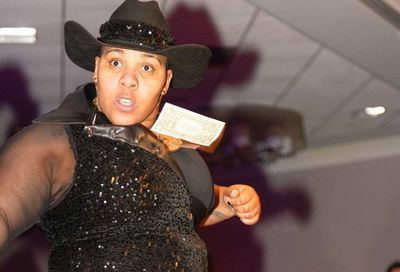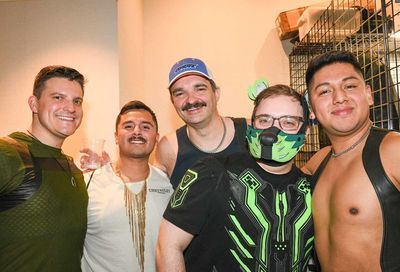Can Horny Male Macaques Help Destigmatize Gay Sex Among Humans?
Research finds that most monkeys on Puerto Rican island of Cayo Santiago discovered to be “behaviourally bisexual.”

Rhesus macaques have long made excellent lab rats — er, monkeys, sharing about 93% of the same DNA as humans. They’ve lent their name to the protein that determines blood type. They’ve taught us about the relationship between mother and child, and they’ve facilitated the development of drugs to manage HIV/AIDS.
Their latest gift to humanity? Showing us that it’s normal — and good — to swing both ways.
New research in Nature Ecology & Evolution suggests that so-called “same-sex sexual behaviour” (SSB) among primates is evolved and socially beneficial.
According to researchers at Imperial College London, most males in a wild macaques colony on the Puerto Rican island of Cayo Santiago were “behaviourally bisexual.”
Of 236 males observed from 2017 to 2020, 72% engaged in same-sex mounting, compared to less than half (46%) for different-sex mounting.
“More than two-thirds displayed same-sex behaviour,” senior author Professor Vincent Savolainen told PinkNews. “And this strengthened the bonds within the community.”
Males that mounted each other were better friends and “more likely to back each other up in conflicts,” he added. They also had more offspring. “The behaviour can have an evolutionary underpinning,” Savolainen said.
Genetic analysis, along with a review of the macaques’ family tree dating back to the mid-1950s, revealed that SSB was around 6% heritable, meaning that it is not random but instead the result of natural selection and evolution. This is the first evidence of a genetic basis of SSB in nonhuman vertebrates.
While naysayers of homosexuality have falsely claimed that it is not present in the animal kingdom, this “research shows that same-sex behaviour is in fact widespread among non-human animals.”
And while “there are differences between humans and these monkeys,” there is also common ground due to our shared ancestor, Savolainen told Live Science. “Maybe in our past, homosexual behavior might have evolved in humans and maybe was also beneficial, as we see in the monkeys.”
Support Metro Weekly’s Journalism
These are challenging times for news organizations. And yet it’s crucial we stay active and provide vital resources and information to both our local readers and the world. So won’t you please take a moment and consider supporting Metro Weekly with a membership? For as little as $5 a month, you can help ensure Metro Weekly magazine and MetroWeekly.com remain free, viable resources as we provide the best, most diverse, culturally-resonant LGBTQ coverage in both the D.C. region and around the world. Memberships come with exclusive perks and discounts, your own personal digital delivery of each week’s magazine (and an archive), access to our Member's Lounge when it launches this fall, and exclusive members-only items like Metro Weekly Membership Mugs and Tote Bags! Check out all our membership levels here and please join us today!



























You must be logged in to post a comment.